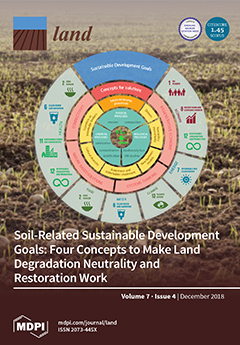Resource information
Policy-makers and practitioners often struggle or fail to define and quantify the economic impacts that can be achieved through ecologically sustainable investments in dryland ecosystems. This paper reviews the current state of the art in the characterization and valuation of environmental benefits in drought-prone areas of Sub-Saharan Africa. Benefit streams from ecosystem services associated with the production of food, energy and water are characterized, as well as those from supporting and regulating hydrological systems. For each value type, valuation approaches and examples of their application in Sub-Saharan African contexts are presented. The review is drawn from a series of recent methodological discussions, working papers and field research reports focusing on the benefits of locally determined and ecosystem-based adaptations under dryland climate extremes. The focus is on the challenges faced by practitioners and researchers tasked with developing benefit-cost assessments for investments in the adaptive management and conservation of dryland ecosystems, particularly in marginalized dry and drought-prone areas of Sub-Saharan Africa. Recommendations could also interest a wider global community of dryland researchers and development practitioners.


